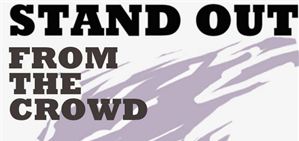- ECQ 1: Leading ChangeOrganizations are constantly in flux. Top-level Federal government managers need to be able to respond swiftly and effectively to internal and external changing circumstances. For this ECQ, hiring managers are looking for a narrative statement that demonstrates your key accomplishments in leading organizations through major change. They will be looking for examples of your organizational vision, ability to think strategically, flexibility, resilience, creativity, and innovation. They want to read about a situation, task, action and result that demonstrates your ability to lead change. Expand on your creativity, innovation, flexibility, external awareness, resilience, strategic thinking, and vision.
- ECQ 2: Leading People
Leaders in SES positions have responsibility for a large staff. In this narrative statement, hiring managers want to see your capabilities as a leader in an executive environment. They will want to read examples of your ability to leverage diversity, build strong teams, develop and mentor subordinate managers and staff, and resolve conflict. Think about a situation when you had to lead a group of people to reach a common goal. Describe the situation, the number of staff, even their titles if appropriate. What was the task? What action did you take? What results did you have? Did you earn an award for your efforts, or did anyone earn an award for their efforts. How did this team effort have an impact?
- ECQ 3: Results Driven
As an executive manager with the Federal government, you will be expected to deliver results consistently. SES positions are high-powered jobs with much at stake. For this narrative statement, describe your past success in delivering results in complex situations—settings where the odds might have been against you. In preparing your response, make sure you demonstrate decisiveness and strong problem-solving skills using your expertise. Show numbers when at all possible. Hiring managers will also be interested in seeing examples of your customer service focus, entrepreneurial capabilities, and technical credibility. Also be sure to demonstrate your experience in accountability, lessons learned, and complying with established control systems and rules.
- ECQ 4: Business Acumen
SES managers are responsible for significant resources—dollars, people, and assets. In this narrative statement, hiring managers will evaluate your financial, human capital, and information technology management skills. Showcase here how you have effectively and efficiently managed the resources under your control to achieve the organization’s goals. Demonstrate your awareness of current events in the industry, associations you belong to, papers you may have written, presentations you have made, professional members, community and volunteer service meld well into this ECQ. Expand on any money you have saved your organization, new policies or procedures you established to streamline the flow of work. Always keep in mind the cost-benefit. Describe how you set priorities to ensure the work gets done on time and within budget.
- ECQ 5: Building Coalitions
In all organizations—especially the Federal government—a leader’s ability to achieve results depends on his or her success in working well with others. Buy-in at many levels, both internally and externally, is needed to move initiatives forward. In this ECQ, you will want to demonstrate your skill in building productive working relationships with others to bring about organizational goals. Hiring managers are looking for politically savvy leaders who can effectively partner with others, influence key stakeholders within and outside the agency, and negotiate skillfully to achieve the organization’s objectives.
Yes, this means your ECQs will be 10 pages, which might seem quite lengthy, but hiring managers will not waste their time interviewing you if you do not first comprehensively demonstrate on paper that you possess the executive-level skills required to do the job.
ECQs must be written narratives that tell a “story” about your leadership abilities. Of course, selective use of bullets to make a point is perfectly acceptable, but your ECQ responses should be well-presented narratives describing your skills, not short, condensed statements. This is your opportunity to shine!
- Start with a broad summary of your ability to lead change.
Begin your narrative by describing your ability to lead change. You might explain that you have a reputation as a change agent because of your consistent success in this regard. Briefly mention several ways in which you have led organizations through change.
- Describe the context or situation.
Then, get specific and discuss how you transformed that flailing unit. Where were you working and what position did you hold when you led this change? What important situational factors were present? For example, why was the unit underperforming? Did it lack strong leadership? Whatever the context or situation, describe it here.
- Explain the challenge.
What specific challenges did you encounter when overhauling the organization? For example, did staff resist your efforts? Did a lack of funding constrain your initiatives? Make sure the reader understands the challenge you were up against, so you can next explain how you overcame the challenge.
- Describe your actions.
What specific actions did you take to overcome the challenge and accomplish the task? For example, if the challenge was a resistant staff and you effectively persuaded them to follow your leadership, this is the place to showcase your talent.
- Present the outcome.
What specific results did you achieve? How can you demonstrate that you turned around the organization? Did staff complete employee satisfaction surveys that demonstrated an increase in morale? Did the organization meet performance targets that it had failed to meet in the past? Did you get an award for your actions?Whenever possible, quantify your results. Further, as available, incorporate quotations or comments that your peers or supervisors mentioned about your success.





